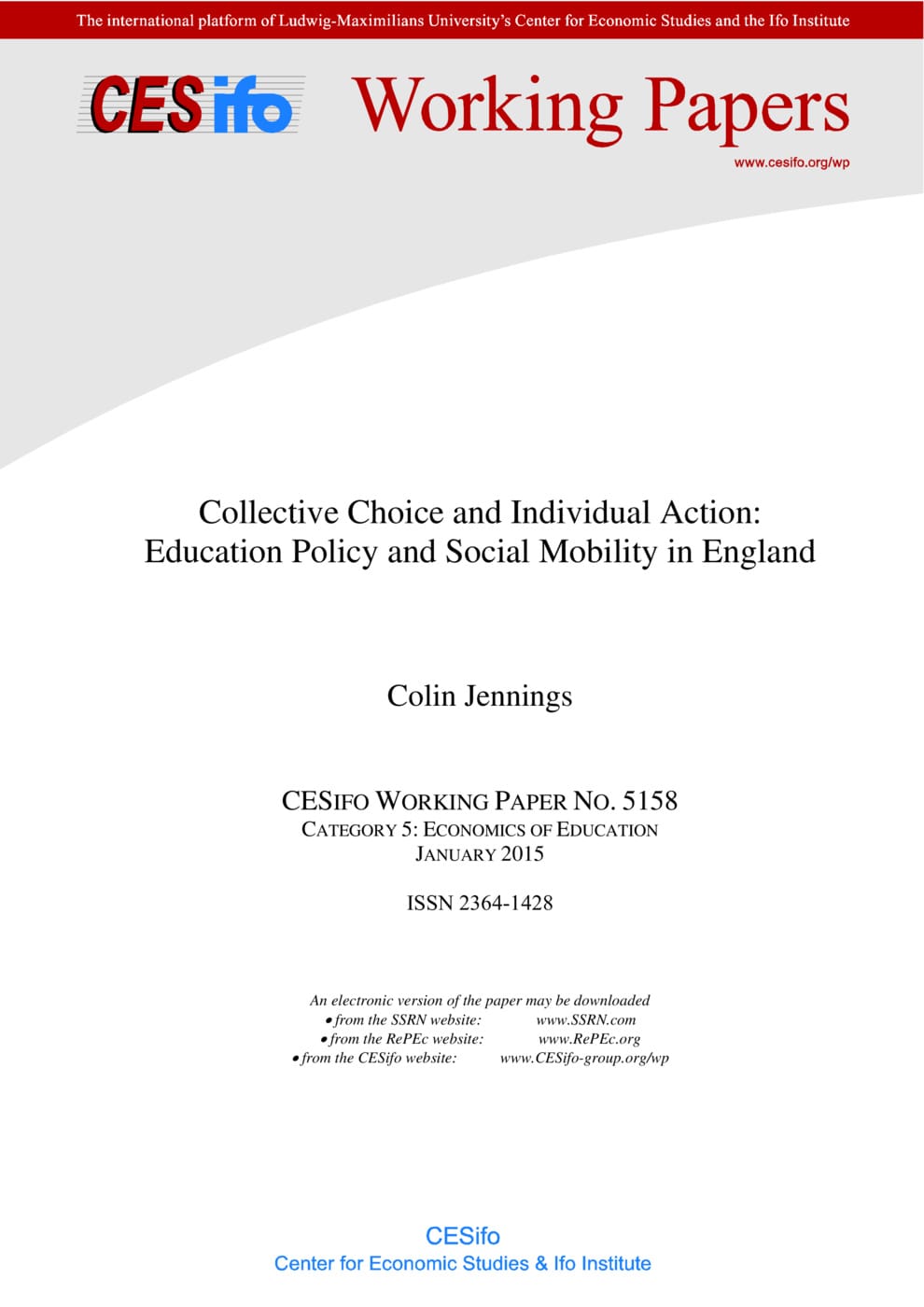Collective Choice and Individual Action: Education Policy and Social Mobility in England
CESifo, Munich, 2015
CESifo Working Paper No. 5158

It is recognised that expressive preferences may play a major role in determining voting decisions because the low probability of being decisive in elections undermines standard instrumental reasoning. Expressive and instrumental preferences may deviate and in electoral settings it is more important to make policies expressively appealing. Policies are even more attractive if they can be made both expressively and instrumentally appealing. This paper studies education policy in England and proposes that arguments for increased state spending in school education is expressively appealing as it appears equitable, but the allocation of students to schools by catchment area is also instrumentally appealing to middle-class families. Allocation to schools by lottery may be expressively but not instrumentally appealing. Cutting education spending and dividing the proceeds between a tax cut to the affluent and a cash transfer to the poor may be instrumentally but not expressively appealing. The effort to provide instrumentally appealing policies with sufficient ethical content to satisfy expressive preferences may lead to inefficiency and distract attention from more serious ethical problems related to the policies.
Economics of Education
Public Choice